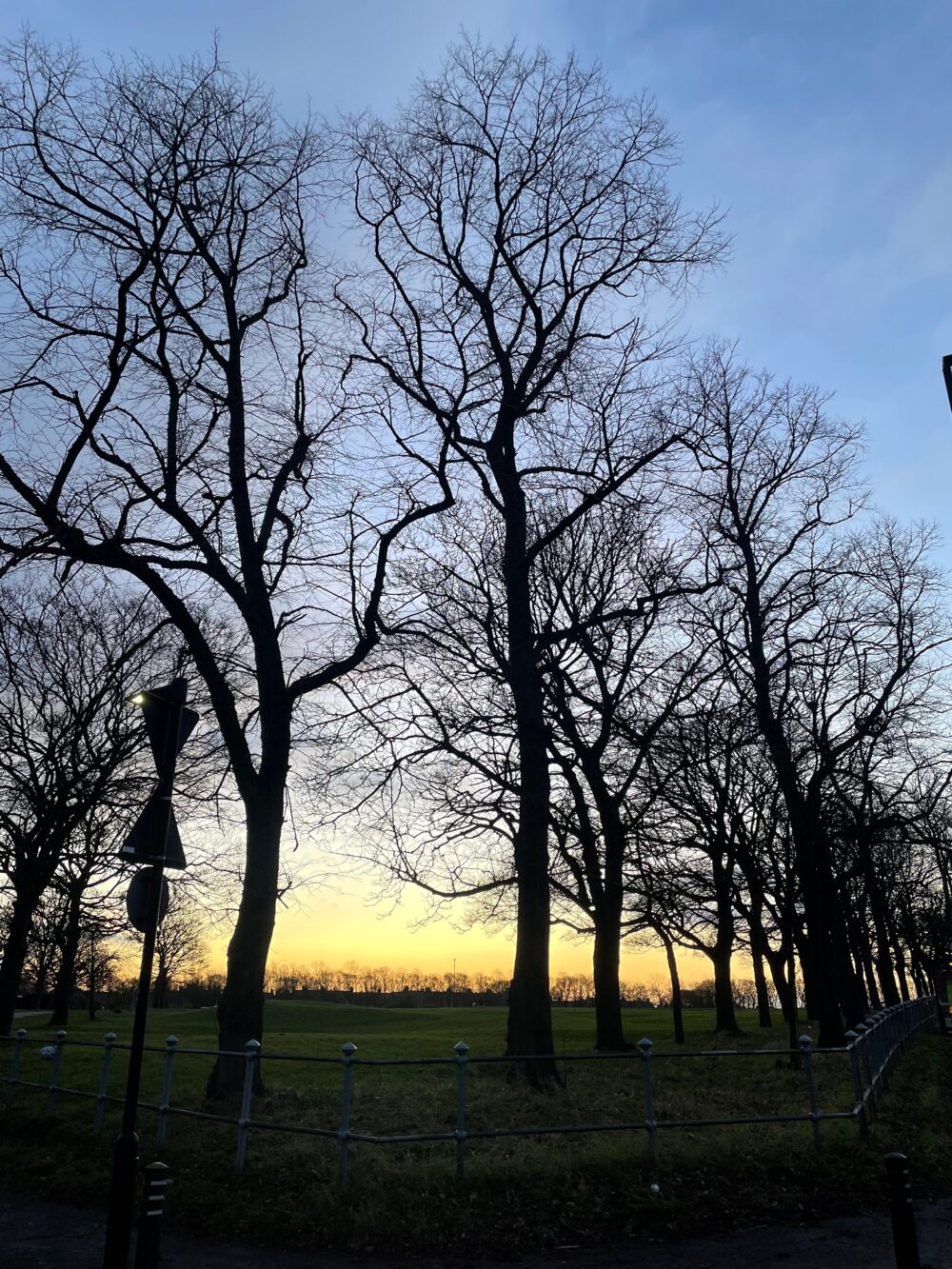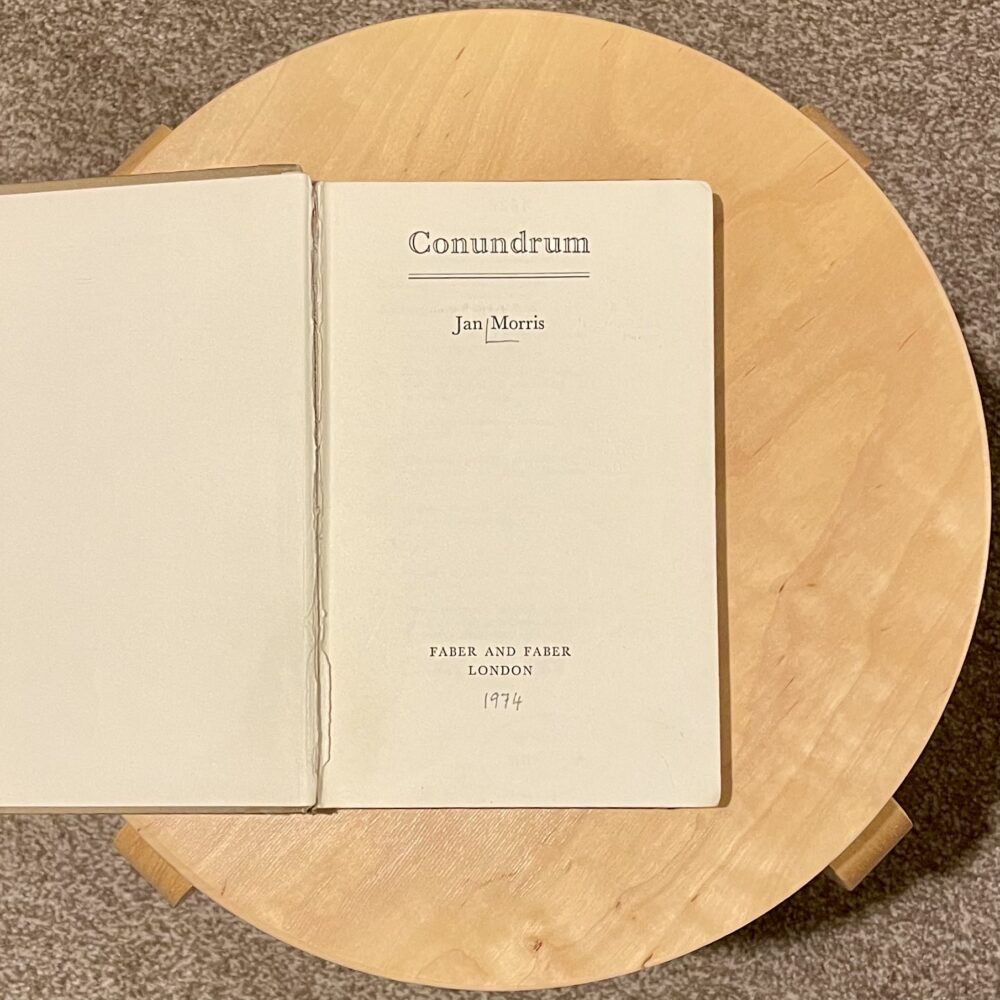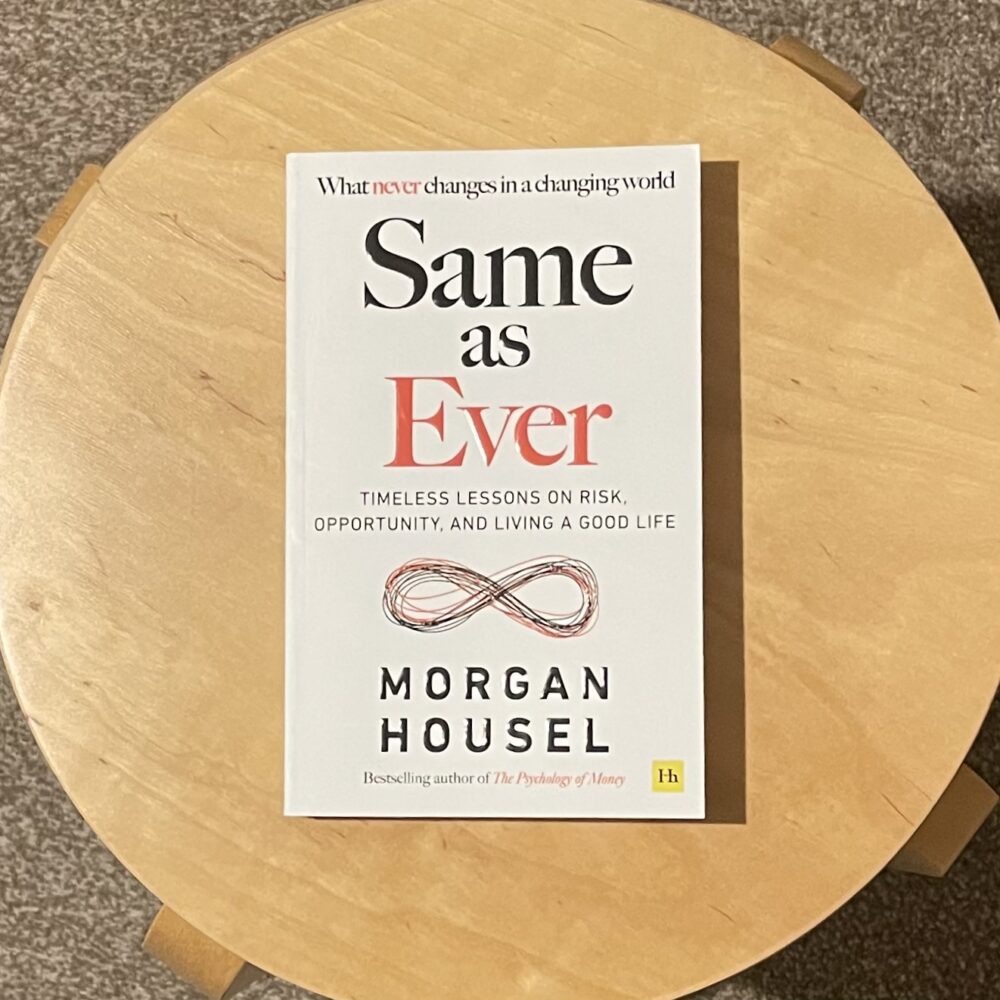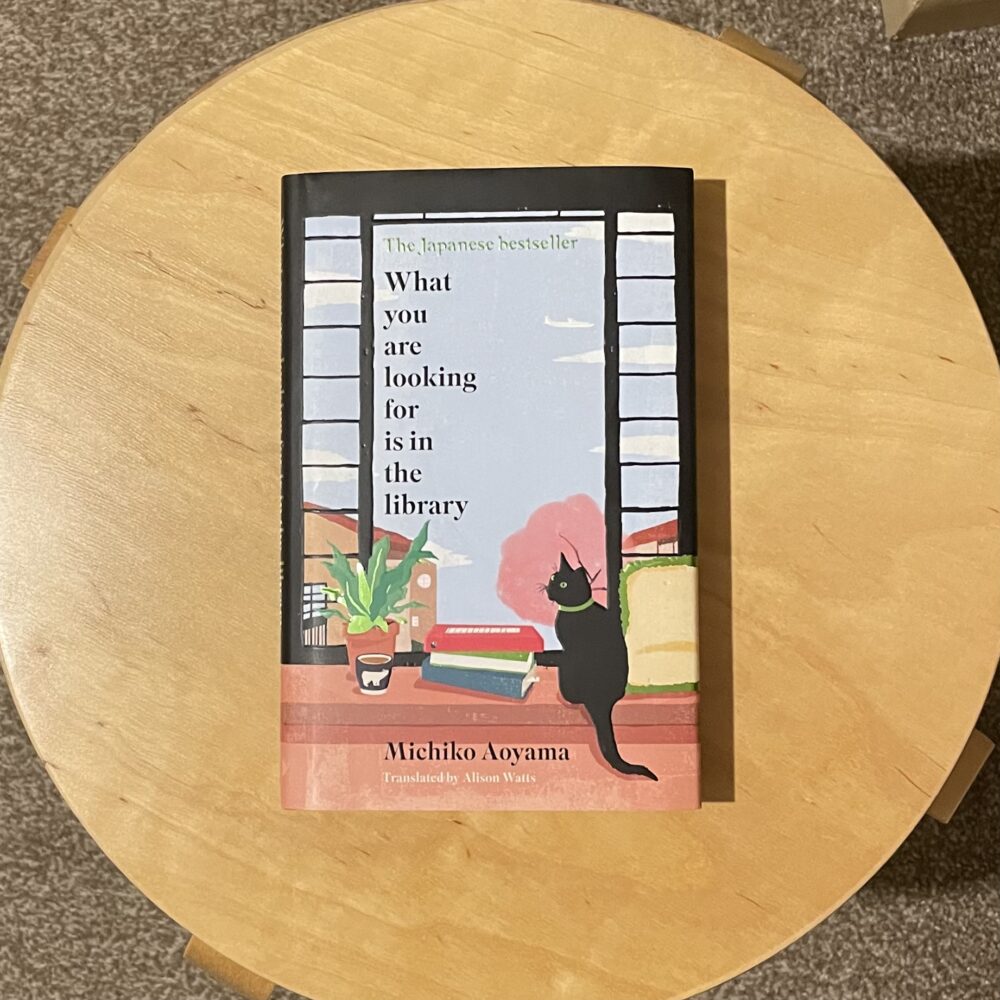My 2023 in 23 numbers
This time last year, I decided to count things that had happened in 2022. This New Year’s Day, I’m going to count the same things again for 2023, and add one more.
Here are 23 numbers about my life in 2023, in descending numerical order, with comparisons to 2022.

My car drove 2,681 miles
▲ 850 miles versus 2022
I’ve driven almost 50% more miles this year than last, and so I no longer have last year’s smugness about having walked further than my car has driven.
The increase is at least partly attributable to attending more meetings for work in person this year than last, though I do try to use public transport wherever possible. I also took my car on holiday to another country for the first time—the Republic of Ireland—which is also the first time I’ve ever driven any car outside of the United Kingdom. At least the Irish still drive on the correct side of the road.
I walked 2,179 miles
▲ 177 miles versus 2022
I’ve walked more this year than last, though the bulk is still attributable to walking to and from work. I regularly count my blessings for having the ability to do that: it’s possibly more important for my psychological health than for my legs’ health, in all honesty.
If you count in steps, it’s a little over 5.1 million—but that seems a ridiculous number to try to contemplate.
Wendy and I took 1,677 photos
▼ 62 photos versus 2022
Regardless of the decrease, this is still a quantity that would have been unimaginable in the days of getting film developed. I still don’t think the world has fully understood the degree of photographic documentation we live with these days, or what it might be doing for our memory and mental health.
I sent 383 personal emails
▲ 2 emails versus 2022
I’m remarkably consistent in my usage of personal emails, or so it seems. I’m slightly astonished by this degree of consistency.
Like last year, I’m also surprised that I send so many personal emails: I’d have probably guessed that I send about 50.
I published 365 blog posts
▲ 292 posts versus 2022
In 2023, I set myself the goal of publishing something every day, as a sort of celebration of the twentieth anniversary of the first post on this blog. I met that goal.
I’m not sure whether I’ll continue with daily posting in 2024: I’ve mostly enjoyed it, though there have been a few last-minute panics. Perhaps I’ll try to continue, but obsess about it less and not worry if I miss the odd day.
I collected 235 coffee shop loyalty stamps
▼ 54 stamps versus 2022
Like last year, I’ve only included Caffé Nero and Costa. despite a relative lack of loyalty to any particular chain. I’m not sure my habits have changed all that much, so I’m at a bit of a loss to explain the drop. Perhaps chains have become a little more parsimonious about bonus stamps in these straightened times?
My tumble dryer completed 193 cycles
▲ 2 cycles versus 2022
I’ve no idea what to make of this. It’s remarkably consistent year-on-year. Of all the things I’ve counted this year, this is the most inconsequential, and I wouldn’t continue to count it if my dryer didn’t do for me.
I placed 140 Amazon orders
▼ 86 orders versus 2022
This time last year, I resolved to give Amazon less of my business. I’m therefore surprised that I’ve still placed quite so many orders: I’d have guessed, and indeed preferred, a much lower number. I clearly need to redouble my efforts for 2024.
I took my blood pressure 130 times
▼ 30 measurements versus 2022
Last year, I wondered if taking 160 measurements was a little obsessive. Is 130 a little lax? I’m not sure I have the energy to worry about it.
I swam 91 miles
▲ 34 miles versus 2022
I only got properly back into my pre-pandemic swimming routine part-way into 2022, so I naturally expected this year’s figure to be higher as it reflects the full year.
I have a slight twinge of disappointment that I didn’t quite break the 100-mile mark, but there’s always next year.
I’ve used 88 single-use paper cups for hot drinks
▲ 52 cups versus 2022
This is a biggy: I’ve continued to obsessively count my number of single-use paper cups for hot drinks, and it has shot up. I surpassed my 2022 total in June, despite regularly carrying a reusable cup: I usually use a HuskeeCup, if you’re interested.
The difference this year is the proportion of these occasions which are attributable to venues using disposable cups for customers who are sitting in. This accounted for only nine cups in 2022, 26% of the total. In 2023, this accounted for a staggering 49 cups: a planet-destroying majority of the times I’ve used a paper cup this year, it hasn’t left the venue where I was given it.
A particularly egregious example is hotels which supply paper coffee cups in guests’ rooms these days rather than proper crockery (here’s looking at you, Hilton and AccorHotels). Some chains of coffee shops seem to use this approach as standard these days (hang your heads, Pret, Greggs and Starbucks in certain countries). This even happened to me in the actual Design Museum, killing off irony once and for all.
I’m mad as hell and I’m not going to take this any more.
My car was driven on 79 days
▲ 6 versus 2022
As with the number of miles, the increase is mostly attributable to driving more for work this year. I would have guessed that the increase would have been bigger than it actually is, especially since Wendy’s car was off the road for quite a large proportion of this year.
This still probably isn’t really frequent enough to justify owning a car.
My car insurance for 2024 doesn’t come with a gadget that counts this, so I might not tally this up again next year.
I’ve used 73 stamps
★ New count for 2023
I’ve counted one new thing for 2023, and that thing is the number of Royal Mail stamps I’ve used. People say that the art of sending letters is dead, yet Wendy and I have sent 73 things that Royal Mail classed as letters this year by sticking on a stamp and placing them in a postbox.
The introduction of the Royal Mail’s ugly barcoded stamps has changed my behaviour in one significant way, though: I now tend to buy only special edition first- and second-class stamps, as they don’t have the aesthetically displeasing barcodes on them. They cost the same as regular stamps. A personal favourite this year has been the Flowers series, though we stuck Paddington on Christmas cards.
I read and reviewed 46 books
▼ 20 versus 2022
I’ve read quite a bit less than usual this year. In fact, this is fewer books than I’ve ever read in a calendar year since I started counting in 2016, the previous low having been 51 books in 2017.
It’s been a challenging year in all sorts of unexpected ways, and as I mentioned previously, there have been times when concentrating on books has proven difficult, so I don’t feel particularly bad about this.
I hope to get back to my normal self in every respect in 2024.
I spent 36 nights in hotels
▲ 9 nights versus 2022
I also had one night on an overnight ferry, which I haven’t counted as a ‘hotel’ even though I suppose it is, sort of. Two of these nights were involuntary, caused by problems with flights: one night was courtesy of British Airways, the other of KLM.
As I said last year, I find that I don’t sleep very well in hotels these days, so I can’t decide whether I’d like this figure to be higher (suggesting more travelling) or lower (suggesting more sleep) next year.
I made 32 personal phone calls
▼ 18 calls versus 2022
As with last year, I’m only counting actual telephone calls in this total, whereas most of my personal ‘calls’ are via FaceTime or WhatsApp. It feels to me like the traditional phone call is becoming a thing of the past, so I’m not surprised to see that this number is shrinking year-on-year.
I placed 27 Deliveroo orders
▼ 95 orders versus 2022
This is a big change, though I suspect the number of meals I’ve had in restaurants has been higher this year.
I’ve also been more likely to pop to the shop on my way home from work rather than order groceries via Deliveroo. I’d like to pretend that this was an eco-inspired change, but it was really just that I’ve discovered an especially tasty rosemary and sea salt focaccia sold by one of the shops I pass en route.
I’ve borrowed 27 library books
▼ 8 books versus 2022
I’m shocked that this number is down this year: it feels like I’ve borrowed more this year. Last year, 53% of the books I read were borrowed from a library. This year, that proportion has edged up a little bit, so maybe that’s why my perception is that I’ve borrowed more than I actually have.
Thanks as always to Newcastle City Library and the London Library, who I borrow from most frequently, though there are at least five other libraries that I occasionally borrow from. I’m very fortunate to be so well-supplied.
I took 11 flights
▼ 6 flights versus 2022
Flygskam is real, and I’m pleased that this figure is declining. I’ve used trains, ships and automobiles for some trips this year where I wouldn’t have hesitated to fly in the past… though I’m not sure the latter is actually an environmental improvement.
I’ve a feeling that this tally might tick up again in 2024 (though I’ve nothing booked), but I don’t see myself getting up to the 29 flights I took in 2019.
I visited 6 countries
▲ 1 country versus 2022
Assuming, like last year, that I can count the UK. None of them were new to me again this year, which is a shame, and none of them were Italy, which is almost a bigger shame.
In previous conversations, Wendy has said that I ought only to count countries in which I’ve overnighted, in which case this year’s total is actually five. My rule, though, is that I can count countries in which I’ve dined while both stationary and not in an airport (a meal on moving transport doesn’t count).
You can take your pick.
I made 4 blood donations
⧓ No change versus 2022
As I observed last year, because I donate every twelve weeks, it’s sometimes possible to squeeze five donations into a calendar year if the dates align… but they didn’t in 2023. I did pass my 75 donation milestone, though.
I wore 3 new pairs of shoes
▼ 1 pair versus 2022
Shoe leather is increasingly expensive, as another Simon once observed.
As in 2022, I also slipped on two new pairs of Kontex cotton room shoes, which also weren’t cheap, and which are increasingly difficult to buy in the UK.
I cycled 0 miles
⧓ No change versus 2022
As I said last year, I’m no cyclist: I don’t own a bike and haven’t borrowed one since 2021.
I did, however, spend 17 minutes on a static exercise bike this year, which was a novelty, albeit one which resulted in bruising. It shan’t be happening again in 2024.
This post was filed under: Counting.











